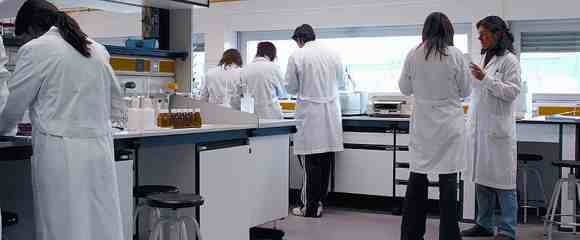
Doesn’t sound so rare after all, does it?
A new award has been created to bring more awareness to rare diseases and motivate researchers to take aim at the oft overlooked diseases. And just in time for the sixth annual Rare Disease Day, celebrated February 28th. The “Rare Disease Science Challenge: Be HEARD (Helping Empower and Accelerate Research Discoveries) Awards” took place February 26 and handed out about half a million dollars worth of awards. Ranging in value from $2,500 to $75,000, the actual awards were research services donated by a total of 19 life sciences companies. Winning researchers studied rare diseases like Idiopathic Pulmonary Arterial Hypertension in which blood pressure is abnormally high in the blood vessels of the lungs, and Sanfilippo Syndrome, a metabolic disorder in which the body is incapable of breaking down a certain type of sugar. The top prize, a genetically modified mouse to study Sanfilippo Syndrome, was donated by Taconic Corporation.
Two companies are behind the award. Assay Depot, a large public and private cloud-based community, and Rare Genomics Institute, a nonprofit dedicated to making genomic sequencing and analysis to family affected by rare diseases. Assay Depot’s online services allow researchers all over the world to reach out to vendors to compare and purchase services. I asked Timothy Chen, Life Science project manager and marketer at Assay Depot, what their motivation was for creating the award. He wrote in an email:

If the award sounds like a good cause to you, the vendors that made it possible would agree. Chen told me their original goal was to raise $200,000 worth of donated services with the hopes to help out one or two rare disease organizations. But with the $500,000 the vendors offered “we’ve created a coalition to help 26 different groups that so desperately need it.”
An early supporter of biohacker spaces like BioCurious, Assay Depot embraces crowd- and open-source solutions. Chen believes such an approach is vital to address medical challenges on the fringe. “Because rare disease research is a broken system moving at a tedious pace, we really needed the open-science community to embrace this challenge and they did. Not only did we source donated research services from the open science community, but the community has also been instrumental in deciding the winners of the challenge” (the $10,000 cash prize winner was chosen by online voting). Chen also pointed out that “the Rare Genomics Institute is using the crowd-funding model to generate donations for sequencing of patients with rare diseases.”
As Jimmy Lin, Founder and President of Rare Genomics Institute wrote last year, research into rare diseases lags far behind research for more common diseases. For most of them, the basic genomics studies haven’t even been carried out, leaving those suffering without candidate genes to even begin experiments on. Chen told me that, of the 7000 rare diseases, less than five percent have FDA approved therapies. But you can’t cure a disease unless you try. Through their Rare Disease Science Challenge, Assay Depot and the Rare Genomics Institute are making sure more people do.



